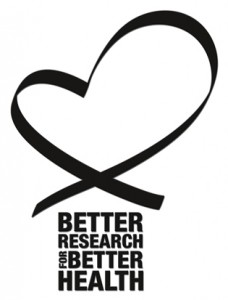Faculty Peer Reviewed
Ten years ago, I found myself in a village in rural central China that was ravaged by AIDS. Villagers had contracted the disease through a contaminated blood-selling program. It was there that I met a rural doctor riding his bicycle to see his patients. In his basket, he was carrying watermelons. It was heartbreaking to realize that this was all he could offer to his patients, who were all going to die. Growing up in Long Island and Hong Kong, I had never witnessed the crisis of global health firsthand. This experience inspired me to go back to school to become a physician, because I wanted to be able to make a difference helping both doctors and patients in these underserved parts of the world.
Anyone reading headlines this year cannot avoid the depressing news about the growing global health crisis. More than 1 billion people suffer from neglected tropical diseases [1]. Just two months ago in a donor replenishment meeting here in New York, the Global Fund to Fight AIDS, TB, and Malaria failed to gain two-thirds of their targeted pledges to finance programs to combat these diseases worldwide [2].  One of our nearest neighbors, Haiti, is repeatedly battered by one disaster after another adversely affecting the health of its people.
News like this is disturbing, as not only is there a shortage of financial resources and public health infrastructure, but there is also a shortage of health care workers. According to the World Health Organization, in 2008, an estimated 57 countries around the globe had an absolute shortage of 2.3 million doctors, nurses, and midwives [3]. With the hope of filling this void, US residency programs across specialties are increasingly offering electives abroad as well as specific curricula designed to prepare American physicians to pursue careers in global health.
Some may ask why should we add a global health component to an already packed curriculum? Residents are an idealistic and passionate group, with many interested in pursuing a career in international health. Just as residents need to do electives in cardiology to inform their choice to become a cardiologist, residency programs must offer electives in global health to inform their consideration of a career in global health. Through exposure to the field, some may consider working for major organizations, such as the United Nations, Doctors Without Borders, start their own NGO, or even work as a faculty member for a US medical school at an international site. Thus, physicians in training today have the opportunity to become leaders of the multidisciplinary field of global health that is aimed at tackling the global health crisis. .
In addition to providing a foundation for residents to become international leaders, global health programs can also enable our residents to become better clinicians here at home. With the world becoming smaller, the epidemiology of tropical diseases is changing. Not only are diseases migrating, but so is our patient population. We see diseases appear at Bellevue such as malaria, schistosomiasis, and dengue fever. Most of us last learned about these diseases early in medical school, but now graduating physicians must be prepared to encounter tropical diseases here at home. Cultural competency is essential to diagnosing and successfully treating the astonishingly diverse patients we see here in New York. What better way to become more cross-culturally savvy than spending time in another country learning about a different medical system? An elective in Dhaka or Fuzhou might enable us to develop a better rapport with our Bengali and Fukienese patients that we see everyday at Bellevue. Spending time in resource poor settings allows a trainee to learn to rely more on physical exam skills and less on expensive diagnostic studies, which no doubt is invaluable in today’s world of cost-cutting here at home.
So, how do we fit a global health program into our existing training module? Several residency programs have successfully incorporated a global health curriculum into their residencies. Some maintain sites abroad which are continuously staffed by rotating residents and attendings from their institution, thereby offering residents a chance to participate in a sustainable project, not simply medical tourism. For example, a resident at Cornell may do an elective rotation at a large teaching hospital in Tanzania where residents round with local teams, give lectures to local housestaff, and are supervised by a Cornell attending who lives at the site year-round. Other programs go further and have global health tracks in which residents attend didactic sessions on topics ranging from international health policy to clinical reviews on tropical diseases to procedural skills frequently needed in resource-poor settings. Residents may select mentors and establish longitudinal research projects at overseas sites, and travel to those sites for clinical elective rotations in their final year. Some programs even combine residency with a Master’s in Public Health degree or a Certificate in Tropical Medicine.
Global health programs within residencies appear to be one way to turn today’s mostly disheartening news about the unavoidable reality of the global health crisis into a success story.  They are growing by popular demand from applicants and residents themselves across the country. The hope here is that eventually we may have something more than watermelons to offer to those who are suffering around the world.
Dr. Doyle is a 3rd year resident at NYU Langone Medical Center
Peer reviewed by Grace Kajita, associate program director, NYU Langone Medical Center
References:
1. http://www.who.int/neglected_diseases/en/. Updated December 9, 2010. Accessed December 14, 2010.
2. http://www.theglobalfund.org/en/replenishment/newyork/. Accessed December 14, 2010.
3. Scheffler, Richard M, et al. www.who.int/bulletin/volumes/86/7/07-046474/en. Accessed December 14, 2010.
Links to resources about global health
1. http://globalhealtheducation.org/resources/Pages/default.aspx
2. http://mssm-ghc.org/node/227
3. http://www.astmh.org/Approved_Diploma_Courses/2867.htm
4. http://www.residency.dom.pitt.edu/Program_Overview/tracks/globalhealth.html
5. http://www.uphs.upenn.edu/medicine/about/internat/index.html
6. http://www2.massgeneral.org/medicine/index.asp?page=residency&subpage=Global
7. http://residency.medicine.duke.edu/modules/medres_reslife/index.php?id=4

